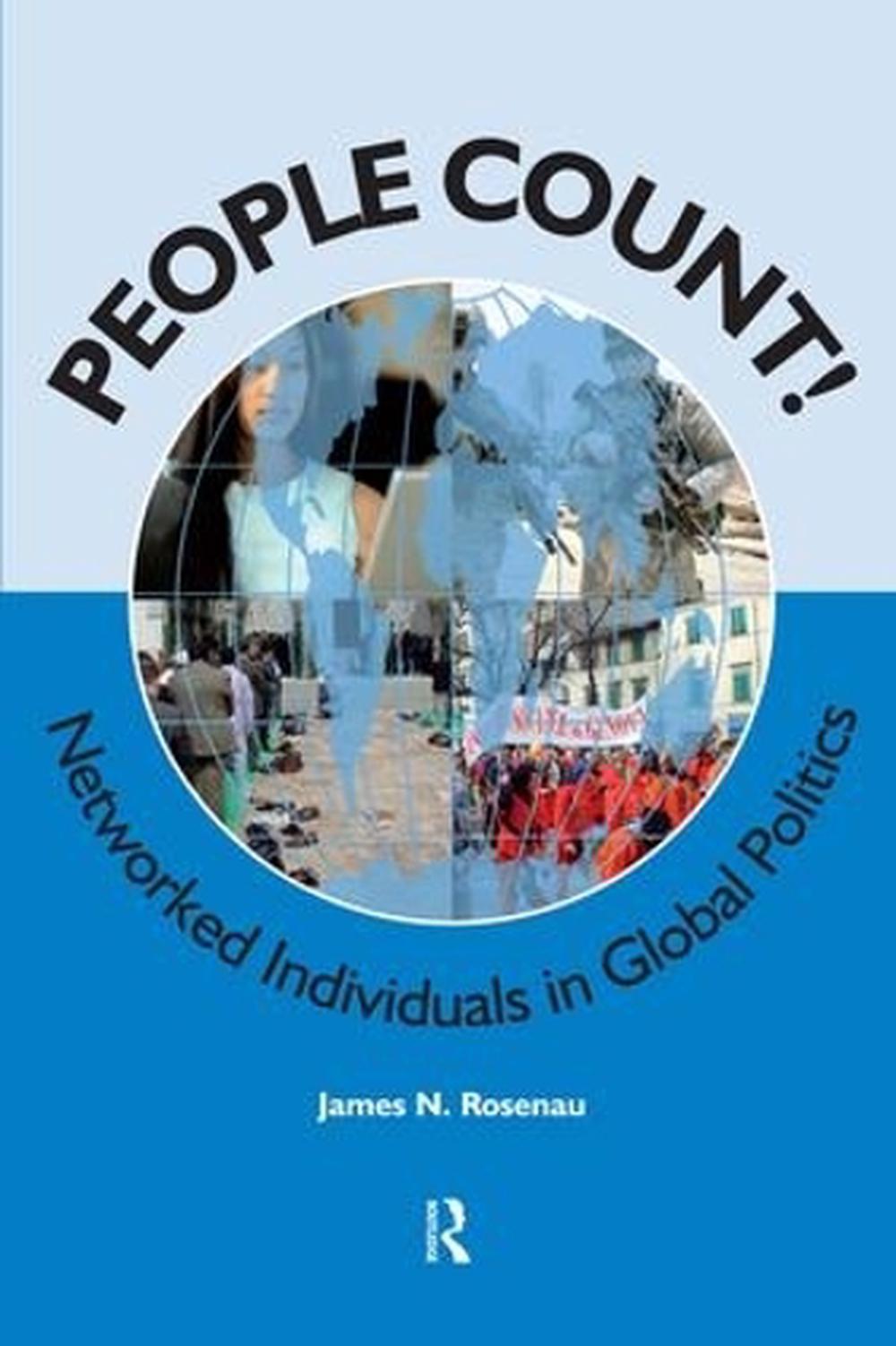
When you click on links to various merchants on this site and make a purchase, this can result in this site earning a commission. Affiliate programs and affiliations include, but are not limited to, the eBay Partner Network.
People Count!: Networked Individuals in Global Politics by James N. Rosenau (Eng

- Item No : 156959148311
- Condition : Brand New
- Brand : No brand Info
- Seller : the_nile
- Current Bid : US $59.07
-
* Item Description
-
The Nile on eBay

People Count!
by James N. Rosenau
Argues that as the world becomes more complex, people as 'networked individuals' become central to the course of events.
FORMAT
PaperbackLANGUAGE
EnglishCONDITION
Brand New
Publisher Description
People Count! rests on a single but important premise: As the world shrinks and becomes ever more complex, so have people-as "networked individuals"-become ever more central to the course of events. This book seeks to depict a new era by analyzing the basic roles people occupy in their family, community, and society, including the wider world.
Table of Contents
Chapter One Teachers and Scholars; Chapter Two Roles in a Fragmegrative World; Chapter Three The Skill Revolution; Chapter Four Demographic Trends; Part I People on the Move; Chapter Five Citizens; Chapter Six Immigrants and Diaspora; Chapter Seven Hybrids and Cosmopolitans; Chapter Eight Travelers; Chapter Nine Activists; Chapter Ten Terrorists; Part II People at Work; Chapter Eleven Soldiers; Chapter Twelve Workers; Chapter Thirteen Business Executives; Chapter Fourteen Public Officials; Chapter Fifteen Consumers; Part III People in Society and Culture; Chapter Sixteen Networkers; Chapter Seventeen Journalists and Bloggers; Chapter Eighteen Worshippers; Chapter Nineteen Students; Chapter Twenty Artists; Part IV People in Unorganized Groupings; Chapter Twenty-One Marginals; Chapter Twenty-Two Generations; Chapter Twenty-Three Classes; Chapter Twenty-Four Recounted People;
Review
"For five decades Jim Rosenau has made scholars and students look at international relations in new and creative ways. In the compelling and accessible People Count!, he continues to do so, reorienting our thinking about IR to the micro-level–where individuals 'shape and are shaped by the macro organizations to which they belong.'"
--Harvey Starr, University of South Carolina
"People Count is a welcome addition to the small but rapidly growing scholarly and instructional literature that aims to put people back into world politics."
--Mary Ann Tetreault, Trinity University
"Read People Count! to find out how individuals and groups steer the big processes in international relations. A master scholar, Rosenau has written one of his best books. Truly a landmark work!"
—James H. Mittelman, American UniversityReview Quote
"For five decades Jim Rosenau has made scholars and students look at international relations in new and creative ways. In the compelling and accessible People Count!, he continues to do so, reorienting our thinking about IR to the micro-level-where individuals 'shape and are shaped by the macro organizations to which they belong.'" --Harvey Starr, University of South Carolina "People Count is a welcome addition to the small but rapidly growing scholarly and instructional literature that aims to put people back into world politics." --Mary Ann Tetreault, Trinity University "Read People Count! to find out how individuals and groups steer the big processes in international relations. A master scholar, Rosenau has written one of his best books. Truly a landmark work!" --James H. Mittelman, American University
Description for Reader
People Count! rests on a single but importantpremise: As the world shrinks and becomes ever more complex, so have people--as "networkedindividuals"--become ever more central to the course of events. The age of the nation-statehas yielded to the age of the individual, and no one is better qualified than distinguishedscholar James N. Rosenau to track this shift in prose that sings. Here he investigates themyriad ways in which "people count" in global politics. Tracing developments inglobalization, demography, and the skills revolution, Rosenau profiles 17 different groupsand shows how and why they matter on the world scene. Along the way, he tells thefascinating back stories behind the roles that people play: Who the terrorists are, whysoldiers fight, how citizens and immigrants compare, what connects the networkers, wheretravelers feel at home, and when the here and now takes a back seat to another world. Thisbook seeks to depict a new era by analyzing the basic roles people occupy in their family,community, and society, including the wider world. The groups thatRosenau examines include:
Details
ISBN1594514151Author James N. RosenauShort Title PEOPLE COUNTLanguage EnglishISBN-10 1594514151ISBN-13 9781594514159Media BookFormat PaperbackYear 2007Residence USSubtitle Networked Individuals in Global PoliticsIllustrations black & white illustrationsDOI 10.1604/9781594514159AU Release Date 2007-10-30NZ Release Date 2007-10-30UK Release Date 2007-10-30Pages 200Series International Studies IntensivesPublication Date 2007-10-30Alternative 9781594514142DEWEY 302Audience Tertiary & Higher EducationPublisher Taylor & Francis IncCountry of Publication United StatesUS Release Date 2007-10-30Imprint RoutledgePlace of Publication New York


















